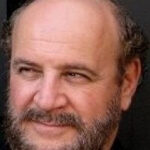The Toronto District School Board (TDSB) and some of that city’s Somali community are at odds. Acting on what it thought were the concerns of the Somali population, the TDSB is considering a modified curriculum and services for the children of Canadians of Somali extraction to deal with a dropout rate 25 per cent higher than the mean.
But some Somalis, especially those who attended the tabling of the report, are understandably furious at being stigmatized and characterized as such. They don’t want to be a “project” of the TDSB.
The TDSB has strayed into the quagmire surrounding who has the authority to speak for or represent a community. Is it a group that says “do something, our kids are in trouble”? Or is it the group that says: “leave us alone, don’t meddle in an internal matter”?
Who can legitimately claim to understand the prevailing sentiments in a group? This is a question often faced by both new Canadian communities and those of us in the media who want to report on a group that is outside the mainstream.
When an immigrant community is new, often enough there are one or two voices that emerge as spokespersons. This isn’t always because the person speaking articulates the thoughts and ideas of the community.
Typically, with a new community, I have found, three types initially distinguish themselves as voices of the community:
- The person who makes a living at it and becomes very comfortable as the pleasant don’t-rock-the-boat face of the community;
- The activist, megaphone in hand at a rally, who is here to tell you his community doesn’t ask for – no, it demands respect; and
- The much quieter ground-level community workers.
The role of media
Now, here’s the challenge. It is easier for political leaders and mainstream media to bestow upon someone the acknowledged position of spokesperson than it is to seek out a number of prevailing points of view. In this world of sound bites, the media need the person who tells and sells it well to a camera or microphone.
After 9/11, CNN called upon articulate Nation of Islam representatives to speak for Islam. However, the Nation of Islam does not represent the vast majority of American Muslims. Active marginal movements identifying themselves as mainstream can easily bend the ears of media and politicians. How many people know that the Buddhism of the Dalai Lama, Tibetan Buddhism, is not representative of Buddhism as a whole?
As a TV Executive Producer responsible for animating minority communities over the years, I found that the people who rush to the forefront are often not spokespersons for the community at large. They are drawn from the first or second group I cited: people who have the zeal and conviction, or those with a financial incentive.
Ears to the ground
When I produce religious and spiritual TV, I can usually locate pious types with an agenda of growth or political advancement, eager to proclaim their messages. In fact, they find me before I find them. It’s not so easy to find ground-level community types who include women and youths in their productions. It is harder animating liberal voices.
It’s too easy to mischaracterize a community by who comes forward to speak for it. Media coverage and official political acknowledgement imparts a sort of legitimacy. You have to wonder, without media coverage would there have been prominence for such figures and organizations as the Rev. Al Sharpton in the U.S., or the late Dudley Laws in Canada, Canadian Punjabi separatist groups, and the official-sounding, yet marginal, Canadian Islamic Congress?
In all cases, part of their credibility derived from savvy use of the media. The media are willing participants. Some lazy reporters and producers choose guests and sources on the basis of who is readily available on a moment’s notice, who’s articulate, or worse yet, who has the most anti-social, outrageous or activist point of view.
It is in our nature to be drawn to radical voices. Many of us love a fight.
Thus the militant voices start to punch far above their weight. The mainstream starts to accord them special status that they haven’t really earned.
Illegitimate Voices
These self-appointed spokespersons may be driven by personal interests and agendas: “L’etat, c’est moi.” In the US, repeated revelations of scandals about his personal ethics and financial dealings have tarnished the significant earlier accomplishments of Rev. Jesse Jackson, once the highly regarded go-to voice of the Black community.
A leading spokesperson claiming to represent Canada’s Croatians boldly asserted to me that there are six million Canadians of Croatian extraction! That’s almost one in every six Canadians, I told him. Unflinching, he continued to insist on his numbers.
The former Ontario City of North York entertained the hugely expensive and massively disruptive idea of removing the number 4 from all city addresses, because a minority community spokesperson told them it was considered “unlucky” by his community.
As a community is finding its feet, someone emerges to speak for the community. The mainstream society doesn’t want multiple voices, thus whoever emerges is heard and granted credibility by media and politicians, alike.
So who really speaks for a community? It’s not a neat and tidy matter. In fact, it is often easier to determine who does not legitimately speak for a given community.
Richard M. Landau has been responsible for adjudicating disputes and enforcing a television network code of ethics in a religious broadcasting setting since 1992. He is a graduate of Carleton University and the University of Ottawa. A leader in interfaith dialogue, Mr. Landau has consulted with the UK Home Office, and the White House Office of Community- and Faith-Based Initiatives. He works closely with leadership in all of the major world religions. He is author of “What the World Needs to Know about Interfaith Dialogue.”





